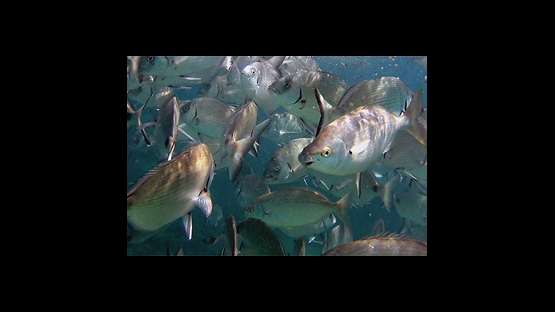As a freshwater crisis looms, and the world´s oceans become increasingly polluted, what lies ahead for the one billion people living without clean drinking water, and the millions whose livelihoods depend on the sea?
Finding answers to questions like these is a focus of the International Conference on Isotopes in Environmental Studies, as 400 leading scientists from 75 countries and international organisations meet 25-29 October 2004, to put the health of the world’s oceans and freshwater systems under the microscope. The venue is Monaco, France, home to the IAEA's Marine Environmental Laboratory.
The Conference examines what solutions isotope techniques can provide, as a key tool to better manage the Earth´s precious waters and marine life. Among topics to be addressed over the five days:
Contamination
Oil spills, fertilizer run-off and dumping of waste and paints into waterways are but a few of the contaminants polluting the world’s oceans and seas. Environmental experts will speak about the impact of contaminants on aquatic life, and look to what can be done. One IAEA project is addressing contamination in the South Mediterranean Sea, and how to lessen the effects on industries and people who rely on its waters for income and food. Little is now known about the sources and release rates of pollutants in the South Mediterranean, but that will change. Though its technical cooperation programme, the IAEA is assisting Algeria, Egypt, Libya, Morocco and Tunisia to develop isotopic tools to better investigate the marine environment and develop a joint regional approach to tackle contamination.
Climate Change
The Conference will hear how isotope techniques are being used to unlock the riddles of the Earth´s climate history. Isotopes reveal important information about the planet´s seesawing periods of warming and cooling in centuries past. The knowledge gained helps scientists find better defences against the adverse effects of climate change. The El Niño phenomena observed in the Pacific Ocean, for example, has wrought heavy impacts on ecology, societies and economies. Scientists will talk about how coral and sediments can be used as an indicator to predict current and long-term temperature changes in the ocean. Coral skeletons are effectively a treasure box, stuffed with environmental archives of the climatic conditions under the sea. Scientists use nuclear and isotopic techniques to unlock this valuable information.
Fresh Water Supplies
Every day, 6000 people, mostly children under the age of five, die from water-borne diseases. Isotope techniques are powerful tools to help locate safe water and manage sustainable fresh water reserves. The conference will critically review the present state of the art of isotopic investigations, and examine ways to increase access to clean, sustainable water reserves. New areas of IAEA research include interactions between water and carbon cycles and fossil groundwater assessment.
The Conference is organised by the IAEA in co-operation with the Commission Internationale pour l’Exploration Scientifique de la Mer Méditerranée (CIESM), UNESCO´s Intergovernmental Oceanographic Commission (IOC), the International Hydrological Programme (IHP), and the Abdus Salam International Centre for Theoretical Physics (ICTP). The Conference is hosted by the Government of the Principality of Monaco.
For further information, please contact:
Scientific Secretary: Pavel P. Povinec (Tel.: +377 97977272; Email: p.povinec@iaea.org)
Secretary: Carol Gustavsen (Tel.: +377 97977272; Email: c.gustavsen@iaea.org)
Conference Services: Mariel Solarik-Leahy (Tel.: +431 2600 21321; Email: m.solarik-leahy@iaea.org).


